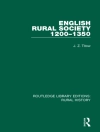Abundant as is the mass of material for the study of history and manners in the sixteenth century, there is even a greater abundance for the history, political and social, of the century of the Stuarts. There are, however, two difficulties to be faced in such an inquiry. The first is that the history of London is far more closely connected with the history of the nation during the seventeenth than during the sixteenth century. It may, indeed, be advanced that at no time, not even when London deposed Richard II. and set up Henry IV., was the City so closely involved in all the events of the time as in the seventeenth century. The City at that time reached the highest point of its political importance, an importance which vanished in the century that followed.
Therefore the historian of London has before him the broad fact that for sixty years, viz. from the accession of Charles I. to the expulsion of James II., he should be pursuing the history of the country. In this place, however, there is not space for such a history; it has already been well told by many historians; and I have neither the time nor the competence to write the history of this most eventful period. I have therefore found it necessary to assume a certain knowledge of events and to speak of their sequence with reference especially to the attitude of the City; the forces which acted on the people; their ideas; their resolution and tenacity under Charles I.; their servility and obedience under Charles II.; and their final rejection of the doctrines of passive resistance, Divine right, and obedience which made the departure of James possible, and opened the door for constitutional government and the liberties of the people.
The second difficulty is, that while the century contains an immense mass of material in the shape of plays, poems, fiction, pamphlets, sermons, travels, sketches, biographies, trials, reports, proclamations, ordinances, speeches, and every other conceivable document for the restoration of the century, the period was sharply divided into two by the Civil Wars and the Protectorate, the latter being at best a stop-gap, while events were following each other and the mind of the nation was developing. It was, in fact, a revolutionary change which took place. The change was deepened by the Great Fire of 1666, after which a new London arose, not so picturesque, perhaps, as the former London, but reflecting the ideas of the time in its churches, which, from Mass houses became preaching rooms; and in its houses, which offered substantial comfort, more light, loftier rooms, standing in wider and better ordered streets, agreeing with the increase of wealth and the improvement in the general conditions of life. The first half of the century is, in fact, a continuation of the Elizabethan period with decay in literature and development in religion; the second half belongs to the eighteenth century, where we find a development of the last forty years of the seventeenth.
Considering London alone, the Restoration seems to me to have been a natural, a wholesome, and a most fortunate reaction against the successive rule of Presbyterian, Independent, and Captain or Colonel. It must have become quite clear even to men like Milton, who was one of the last to lift his voice against the return of a king, that a Commonwealth was too far in advance of the people, and that a military despotism was intolerable.
In the same way the Revolution was a swing back of the pendulum; it was quite as natural and as salutary as the rebellion against Charles and the Restoration of his son. I read this lesson clearly in the history of London, and I assume it for the history of the country.
Walter Besant
London in the Time of the Stuarts [PDF ebook]
(Illustrated Edition)
London in the Time of the Stuarts [PDF ebook]
(Illustrated Edition)
Achetez cet ebook et obtenez-en 1 de plus GRATUITEMENT !
Langue Anglais ● Format PDF ● ISBN 9788834171486 ● Taille du fichier 19.2 MB ● Maison d’édition iOnlineShopping.com ● Publié 2019 ● Téléchargeable 24 mois ● Devise EUR ● ID 7130260 ● Protection contre la copie sans












